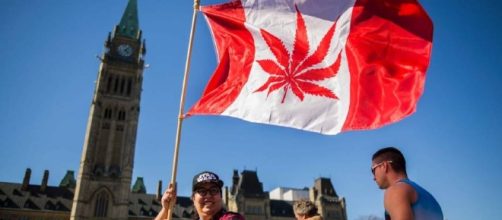When he was running for Prime Minister in 2015, justin trudeau made a bold promise, "We will legalize, regulate and restrict asses to marijuana." Now the time has come to make good on that promise. Today the federal government tabled a pair of bills that will make legal pot use a reality. The first of the bills, the Cannabis Act, will act as an outline on the recreational framework for marijuana while the second bill will beef up impaired driving laws.
Cannabis Act focuses on public health, not profits
In creating this legislation, Trudeau and the federal government did their research into what will and will not work for the Canadian population; looking at examples such as Colorado and Washington State as key players in the writing of the legislation.
Some of the key points for legal, recreational cannabis use in Canada come 2018 are as follows:
- Use will be restricted to those over the age of 18 years of age (provinces/territories can chose to raise the age)
- Adults will have the ability to grow up to 4 marijuana plants legally at home
- Adults will be able to carry up to 30 grams of marijuana on them
- All legal cannabis will be sold at provincially-regulated shops only (much like the LCBO or Beer Stores)
Bill Blair, former police chief turned Member of Parliament (MP), is now the point man for the legalization of pot in Canada. He held a press conference today, emphasizing that one of the key objectives of the Cannabis Act will be to protect Canadian youth.
Blair insists that youth be protected from any and all marketing of legal pot, just as older tobacco ads had to be changed to deter youth from using the product. The proposed bill also creates several new marijuana related offences concerning minors:
- Anyone found to be selling or giving pot to a minor faces a maximum sentence of 14 years in prison;
- Anyone using/exploiting a minor to commit a marijuana-related offence will also face up to 14 years in prison
Mr. Blair also states that anyone found trafficking, using, buying, or selling outside of the regulated regime proposed in the legislation will still be facing a serious criminal offence. He also reiterated the point that just because legal pot is on the horizon, we have not entered a "free for all" zone where anything goes until the law passes.
Public Safety Minister Ralph Goodale stated that the transition must be "orderly" and that all current marijuana laws will be enforced until this legislation passes.
Goodale also addressed how the laws would affect border crossings between the US and Canada, stating that governments will step in if it appears that border crossings and examinations are becoming increasingly difficult.
Driving high just as bad a driving under the influence of alcohol
The second half of the legislation proposed by Justin Trudeau's Liberal government sets to toughen the laws against driving high, as it is believed that instances of driving high are set to spike in tandem with the legalization of marijuana. The government is already trying to publicize and deter drivers from driving under the influence of any drugs, prescription or illegal.
Although no concrete legal limit for marijuana impairment was outlined in the legislation introduced, the preliminary consequences were. The overhaul of the laws state that no one would be allowed to operate a motor vehicle within 2 hours of having illegal levels of drugs in their system. The penalties for illegal drug levels will range from a $1,000 fine to life in prison depending on the level of impairment and if there were any injuries or death resulting from any accidents that occur.
Overall, this legislation is just the first step for Prime Minister Trudeau's government, with many questions left to answer, and many key points now in the hands of the provincial and territorial governments.
It will be interesting to see if marijuana legalization will truly undercut the organized crime component of the cannabis trade, crippling the industry as many advocates for legalization have hoped. The timeline for Canada, the first of the G7 nations to propose legalization nationwide, gives a loosely proposed deadline of July 1st, 2018, Canada's birthday.

